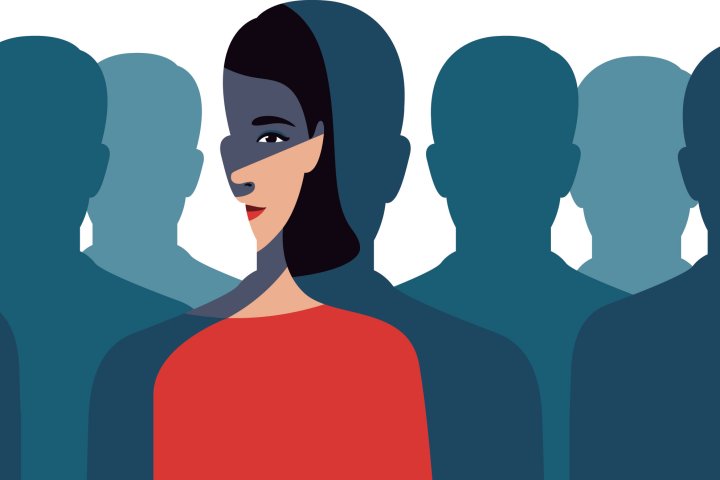What is Gender and How is It Produced?
Gender inequalities surround us nowadays. While 474 women killed, and at least 166
women were raped by men in Turkey, only in 2019, we have to discuss gender
and negative discrimination against
women in our society. Firstly, let’s emphasize the difference between sex and
gender.

While sex
refers to biological presence in our lives, gender is completely different.
Gender is a structure that was built by the society. Gender does not refer to
biological sex, in contrast, it is a social issue. Society constrains people to
have or choose a gender and to act like this gender. This begins in the family.
How babies learn things that are around? At this point, imitation is the first step for babies. Babies copy their parents or people who are around. In addition, two concepts become important at this point: significant other and generalized other. Significant other can be carers like parents. Children copy their parents’ behaviors and they want to be like them. Then, generalized other gets involved in. Generalized other can be summarized as being able to imagine being many others in many situations. Learning to take on the role of generalized other means being able to see the self from point of view of others (Holmes, 2007). Thus, children begin to pay attention to what other people will think about them. “We take into account what is socially acceptable in deciding to behave.”(Holmes 2007). So we can say that how we are and how we behave are socially constructed (Holmes, 2007). Being sociallyacceptable gain importance for both boys and girls. At this point, children begin to realize their sexual identities slowly, and children try to recognize their sexual identities while trying to ensure social expectations. Girls and boys do not learn how to be a human. They have to learn how to be a boy and how to be a girl, but these two issues are completely different from each other because being a man and being a woman are shaped by society and they convert the social norms.

Beside the
family, children learn gender in schools. In this respect, girls become
disadvantaged than boys because of the gendering of the subjects, a lack of
role models, sexist resources, and the way that classroom interacton operated
to favour boys (Holmes, 2007). While there is a masculine language even in
everyday speech, it is possible for boys and girls who are exposed to it during
the lessons to start changing their behaviors. Moreover, children can learn
from each other negative things such as use of slang and profanity, and these
two things represent the masculine language. Thus, boys can begin to suppose
that being a man and use of masculine language make them superior to girls and
other boys who do not use masculine language.
In addition to these topics, encouraging about acting like her/him gender is another issue in our society. For instance, while boys are encouraged about learning hard sciences, girls are encouraged about being teachers who have to take care of children. So, in society, girls are encouraged occupations which are associated with motherhood, while boys are encouraged to pursue more technical professions.
Moreover,
toys take a really important role at this point. Sub-texts in toys that
children play at home or in kindergarten penetrate into children's subconscious.
For example, Barbie dolls are associated with femininity and femininity is
shown as fragile, delicate, and exaggerated body lines. Thanks to these things,
women are commodified as objects and bodies and, women are humiliated as
fragile creatures although it is not so. Besides, toys such as weapons and
knives given to boys are associated with masculinity with aggression.

Our world
begins to take shape differently when these children under these conditions
grow up. As a result of this, there are agglomerations according to certain sexes
in certain occupational groups and there is a heterogeneity in the gender of
individuals belonging to this occupation group. For example, the distribution
of men and women is very disproportionate in the parliament that takes over the
administration of the Turkish state. Can we say that there is an equality and a
justice in that country when there is such an imbalance of power even in the
parliament, which is the administrative unit of the country?
As a
conclusion, femininity and masculinity are somethings taught from childhood or
even infancy. Inequalities start from the mother's womb, and take over our
lives until we die due to the fact that gender inequality is that to be taught.

Yorumlar
Yorum Gönder